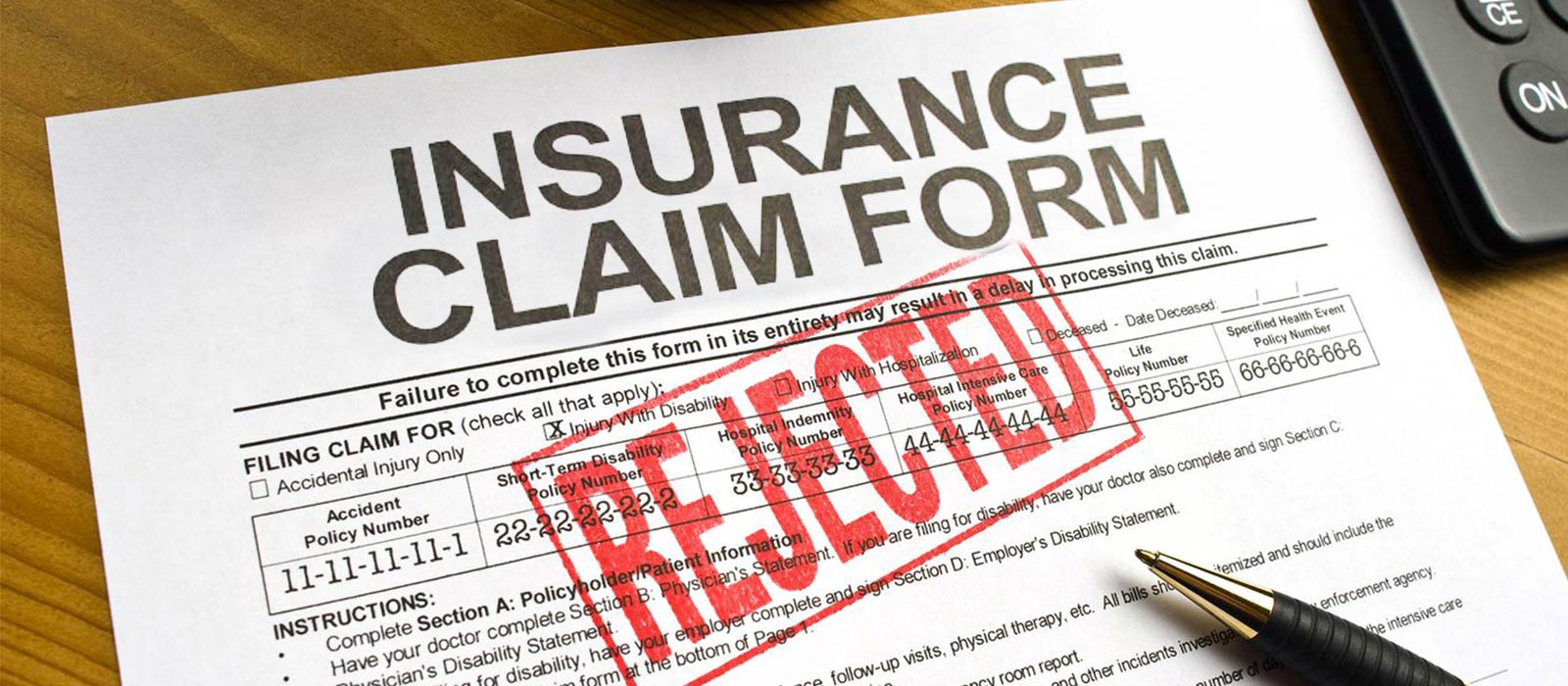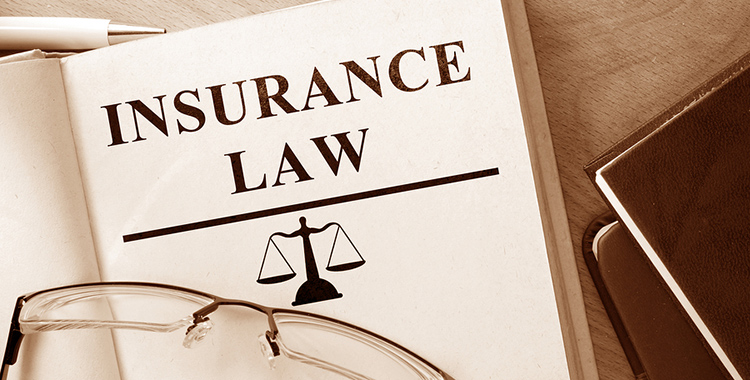Insurance litigation involves legal disputes between policyholders and insurance companies over coverage, claims, or contract issues. It is a complex legal process.
Insurance litigation can arise from denied claims, policy interpretations, bad faith practices, or coverage disputes. These cases may involve various types of insurance, such as health, auto, property, or liability insurance. When facing insurance litigation, it is crucial to seek legal advice to navigate the complexities of the legal system and protect your rights as a policyholder.
Understanding the basics of insurance litigation can help individuals make informed decisions and take appropriate actions when dealing with insurance-related legal matters.
The Landscape Of Insurance Litigation
Insurance litigation is a complex area of law that involves disputes between insurance companies and policyholders. Understanding the landscape of insurance litigation is crucial for both insurance professionals and individuals navigating legal challenges related to insurance claims.
Common Causes Of Insurance Disputes
Insurance disputes can arise from a variety of situations, including denial of claims, coverage disputes, and bad faith practices. Policy interpretation and allegations of misrepresentation are also common sources of conflict between insurers and policyholders.
Current Trends In Insurance Lawsuits
Recent trends in insurance litigation include an increase in cyber insurance disputes due to the rising frequency of cyber attacks. Additionally, business interruption claims have become a focal point amidst the COVID-19 pandemic, leading to a surge in related lawsuits.
Key Players In Insurance Litigation
When it comes to Insurance Litigation, there are several key players involved in the process. Understanding the roles of each party is essential in navigating through the complexities of insurance disputes.
Roles Of The Insured And Insurer
The insured party, typically an individual or business, seeks coverage for losses or damages under the insurance policy. The insurer, on the other hand, is responsible for evaluating claims and determining coverage based on the policy terms.
Involvement Of Legal Representatives
Legal representatives play a crucial role in Insurance Litigation. They advocate for their clients, providing legal advice and representation throughout the litigation process.
Pre-litigation Considerations
When it comes to insurance litigation, the pre-litigation phase is crucial for setting the stage for a successful resolution. Preparing diligently and understanding key considerations can significantly impact the outcome of the case. In this article, we will delve into the essential pre-litigation considerations, focusing on understanding policy terms and conditions as well as the importance of evidence and documentation.
Understanding Policy Terms And Conditions
Before proceeding with insurance litigation, it’s imperative to thoroughly comprehend the policy terms and conditions. This entails reviewing the coverage limits, exclusions, deductibles, and any applicable endorsements. By having a clear understanding of these aspects, you can effectively assess the scope of the policy and identify potential areas of dispute.
The Importance Of Evidence And Documentation
In insurance litigation, evidence and documentation serve as the foundation for building a compelling case. It’s essential to gather and preserve all relevant documents, including insurance policies, correspondence, claim records, and any pertinent photographs or videos. Additionally, securing witness statements and expert opinions can bolster the strength of your case.

Credit: www.vttriallaw.com
The Litigation Process Step By Step
Insurance litigation involves a series of steps that aim to resolve disputes between policyholders and insurance companies. Understanding the litigation process can help navigate the complexities of insurance claims effectively.
Filing A Claim: The Initial Stage
Filing a claim marks the beginning of the litigation process. Policyholders submit their claim to the insurance company, detailing the incident and the damages incurred.
Discovery Phase: Gathering The Facts
In the discovery phase, both parties exchange information and evidence related to the claim. This phase involves interviews, document requests, and depositions to gather facts for the case.
Strategies For Successful Claim Resolution
When dealing with insurance litigation, employing effective negotiation tactics is crucial for achieving favorable outcomes. One tactic involves clearly outlining the strengths of your claim and supporting evidence.
Furthermore, listening actively to the opposing party’s concerns can help identify common ground for a resolution.
Another key aspect of successful claim resolution is considering alternative dispute resolution methods. These methods, such as mediation and arbitration, offer more efficient and cost-effective solutions compared to traditional court litigation.
Common Challenges And How To Overcome Them
When dealing with insurance litigation, there are several common challenges that policyholders may encounter. Overcoming these obstacles is crucial for successfully navigating the complexities of insurance claims. Let’s explore some of the common challenges and effective strategies to overcome them.
Dealing With Delays And Denials
Delays and denials are frequent hurdles in insurance litigation. Insurance companies often employ these tactics to prolong the settlement process or avoid paying out claims. To overcome this challenge, maintain meticulous records of all communications and documentation related to the claim. Promptly respond to all requests from the insurance company and seek legal counsel if necessary.
Navigating Complex Policy Language
Understanding the complex language of insurance policies can be daunting for policyholders. To overcome this challenge, carefully review the policy documents and seek clarification from the insurer regarding any ambiguous terms or clauses. It’s essential to have a clear grasp of the policy language to effectively advocate for your rights in the event of a dispute.
Impact Of New Regulations And Laws
New regulations and laws have a significant impact on insurance litigation. These changes can alter the legal landscape and affect the way insurance disputes are handled, potentially influencing the outcome of court cases and settlement negotiations. Staying informed about these developments is crucial for insurance professionals and legal experts.
The insurance industry operates in a dynamic legal environment. Adapting to Changes in Insurance Law is crucial for insurance companies. Predicting future legal trends helps in staying compliant and competitive.Adapting To Changes In Insurance Law
Insurance companies must proactively monitor and interpret new regulations. Implementing necessary changes swiftly ensures compliance and minimizes risks.Predicting Future Legal Trends
Staying ahead of emerging legal trends is essential. Anticipating regulatory shifts allows for strategic planning and risk mitigation.
Credit: masonlawfirm.com
Case Studies: Lessons Learned From The Trenches
Insurance litigation can be a complex and challenging field, with each case providing valuable insights and lessons. In this section, we’ll delve into case studies that offer a closer look at the strategies that led to success in high-profile cases, as well as the missteps that resulted in failures. By examining these real-life examples, we can gain a deeper understanding of the intricacies of insurance litigation and apply these lessons to future cases.
Winning Strategies In High-profile Cases
Effective strategies play a pivotal role in achieving favorable outcomes in high-profile insurance litigation cases. Let’s explore some key tactics that have proved successful:
- Thorough documentation and evidence collection
- Strategic use of expert witnesses
- Robust legal research and case preparation
- Clear and persuasive communication of legal arguments
Analyzing Failures And Missteps
Learning from failures is equally important in insurance litigation. By examining missteps, we can identify areas for improvement and avoid similar pitfalls in the future. Here are some common missteps that have led to unfavorable outcomes:
- Inadequate evidence and documentation
- Weak or unconvincing legal arguments
- Underestimating the opposition’s case
- Failure to adapt to evolving legal precedents

Credit: wolflawpc.com
Frequently Asked Questions
What Is The Most Frequently Litigated Condition In Insurance Coverage Disputes?
The most frequently litigated condition in insurance coverage disputes is probably the interpretation of policy language. Disputes can arise over what specific terms mean, or whether certain events or situations are covered under the policy. This can lead to disagreements over who is responsible for paying claims and how much they are responsible for.
What Is Lawsuit Insurance Called?
Lawsuit insurance is commonly known as “legal expenses insurance” or “litigation insurance. ” It provides coverage for legal costs.
Can You Buy Lawsuit Insurance?
Yes, you can purchase lawsuit insurance to protect yourself financially in legal cases.
What Is Salvage Value In Insurance?
Salvage value in insurance refers to the monetary value of an insured asset after it has been damaged and is beyond repair. The insurance company may choose to sell the damaged asset to a salvage company to recoup some of the losses.
The salvage value is subtracted from the total claim amount paid by the insurer.
Conclusion
Insurance litigation can be a complicated and stressful process, but it is important to understand your rights and options. Working with an experienced attorney can help ensure that you receive fair and just compensation for your losses. It is crucial to thoroughly review your insurance policy and document any damages or injuries.
By being proactive and informed, you can navigate the insurance claim process with confidence.
